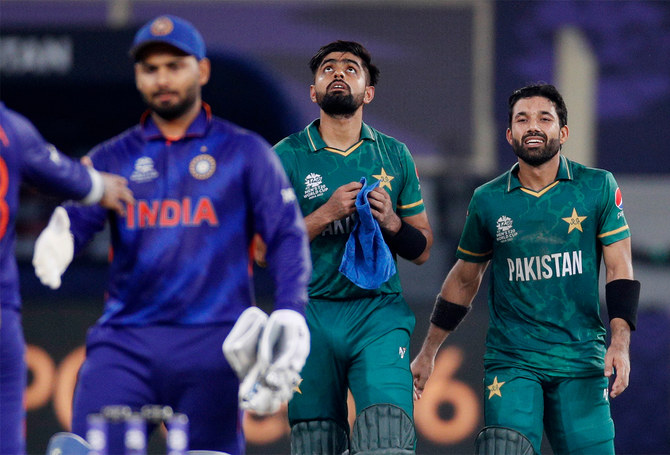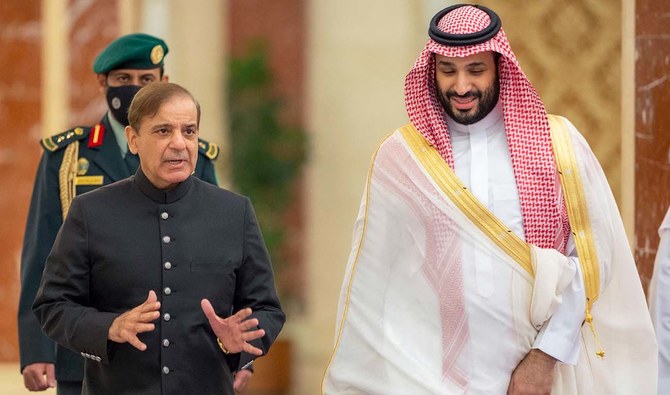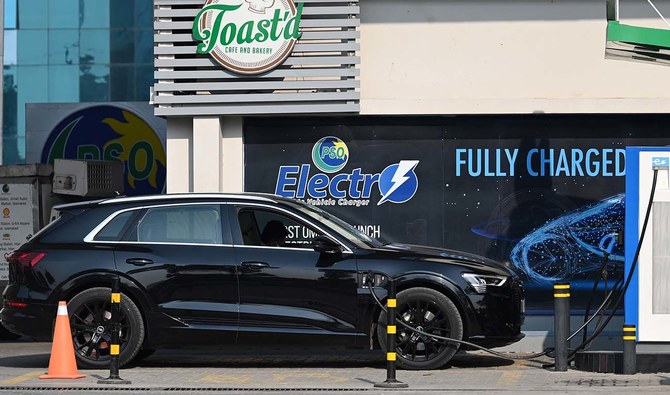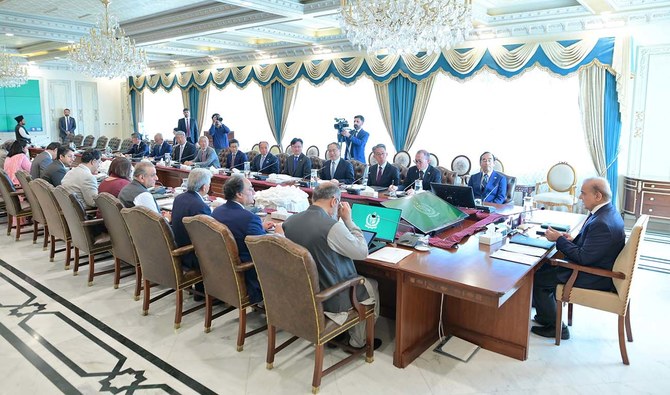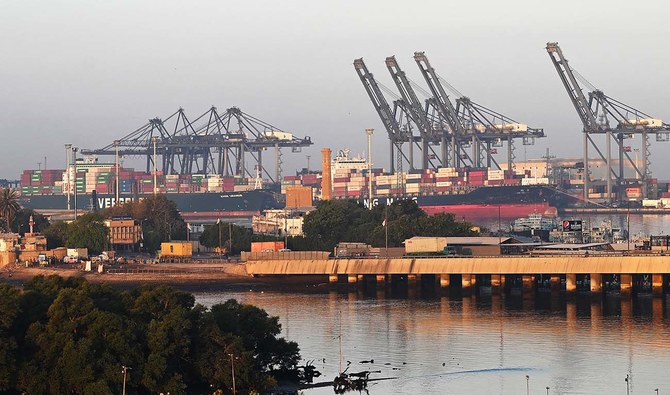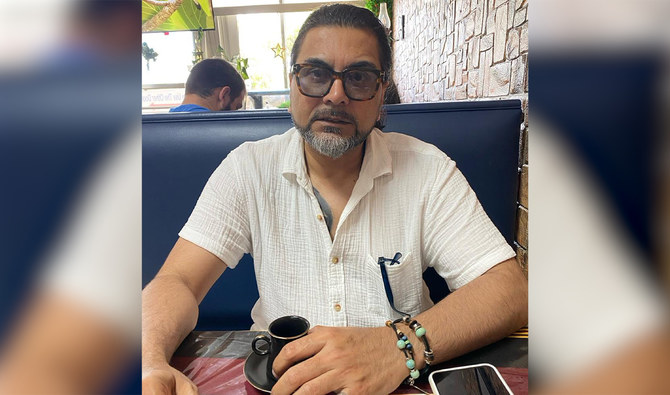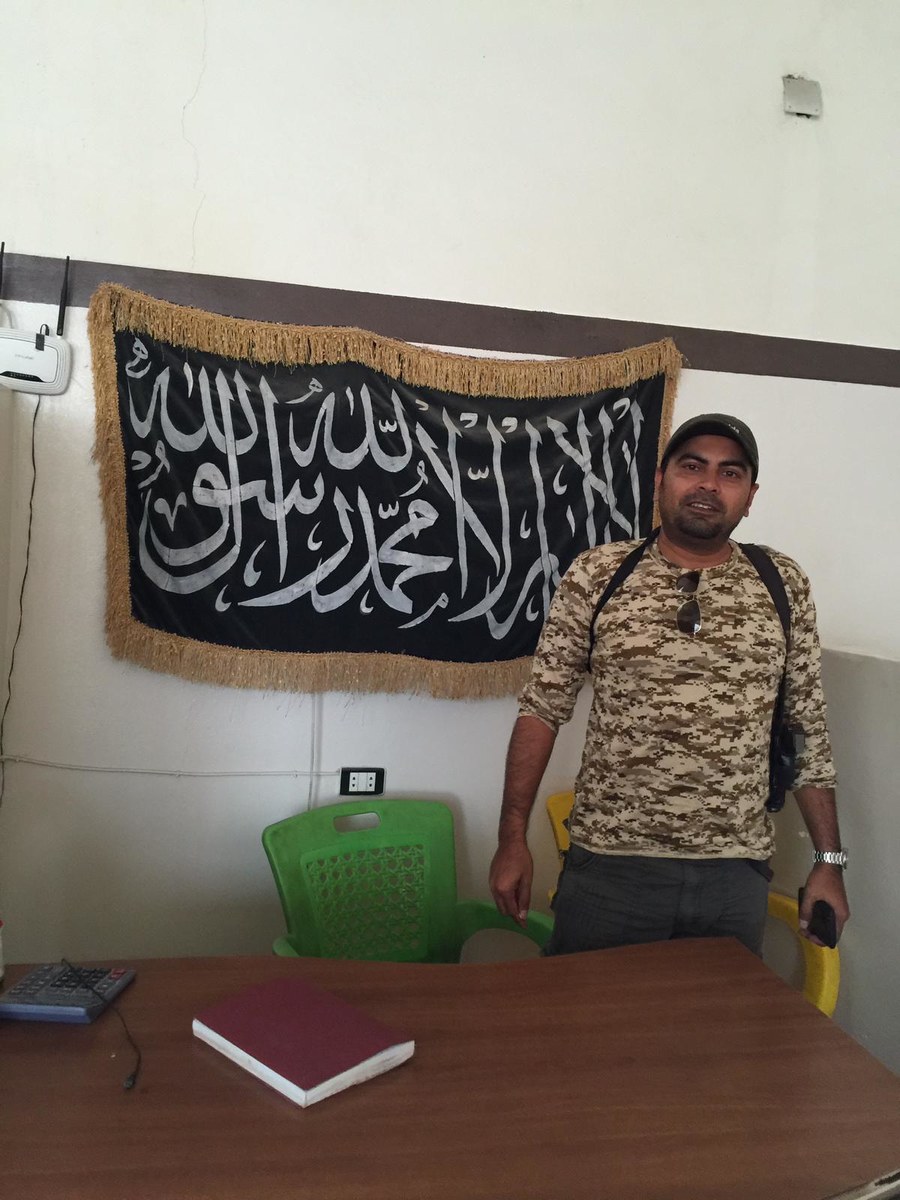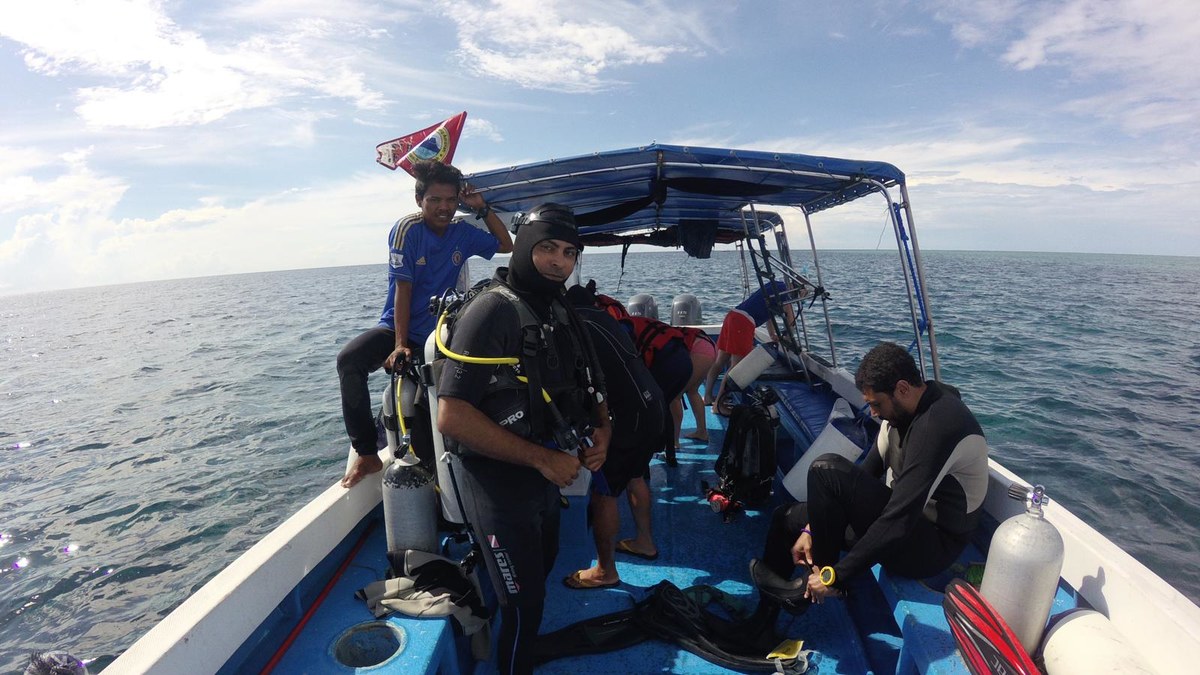DUBAI: Captain Babar Azam and Mohammad Rizwan smashed unbeaten half-centuries as Pakistan crushed India by 10 wickets to register their first win over the archrivals in the high-voltage Twenty20 World Cup opener in Dubai on Sunday.
Chasing 152 for victory, Babar (68) and Rizwan (79) took apart the Indian bowling as they steered their team home with 13 balls to spare in Dubai.
Left-arm quick Shaheen Shah Afridi set up victory — their first over their neighbors in six attempts in the tournament — with figures of 3-31 that restricted India to 151-7 despite a valiant 57 from skipper Virat Kohli.
“This is the first time we’ve beaten India and I feel proud,” Afridi told AFP.
“I knew it would be good for us if I got early wickets and that worked out. My idea was to get as much swing as possible.
“You don’t get a lot here, but I wanted to get those breakthroughs and gave it 100 percent. In my opinion the new ball was difficult to play, so credit goes to Babar and Rizwan.”
In the immediate aftermath of the victory, celebratory gunfire erupted in the Pakistani cities of Islamabad and Karachi.
Babar and Riwan went on the attack from the start with boundaries inside the powerplay — the first six overs when only two fielders are allowed outside the inner circle — to set the tone for their chase.
The dew did not help the Indian bowlers who regularly wiped the moisture off the ball with their towels while the openers kept the score ticking and got the occasional fours and sixes.
The batting pair kept up the charge as Babar reached his fifty with a six off spinner Varun Chakravarthy to get the Pakistan supporters dancing with joy.
Rizwan raised his fifty with a boundary off pace bowler Jasprit Bumrah and then raced past his captain, hitting six fours and three sixes in his 55-ball knock.
Babar hit the winning runs to turn a new page in Pakistan-India rivalry.
“We did not execute the things that we wanted to but credit is certainly due — they outplayed us today,” Kohli admitted.
“They were very professional with the bat as well but we’re certainly not a team that presses the panic button, it’s the start of the tournament, not the end.”
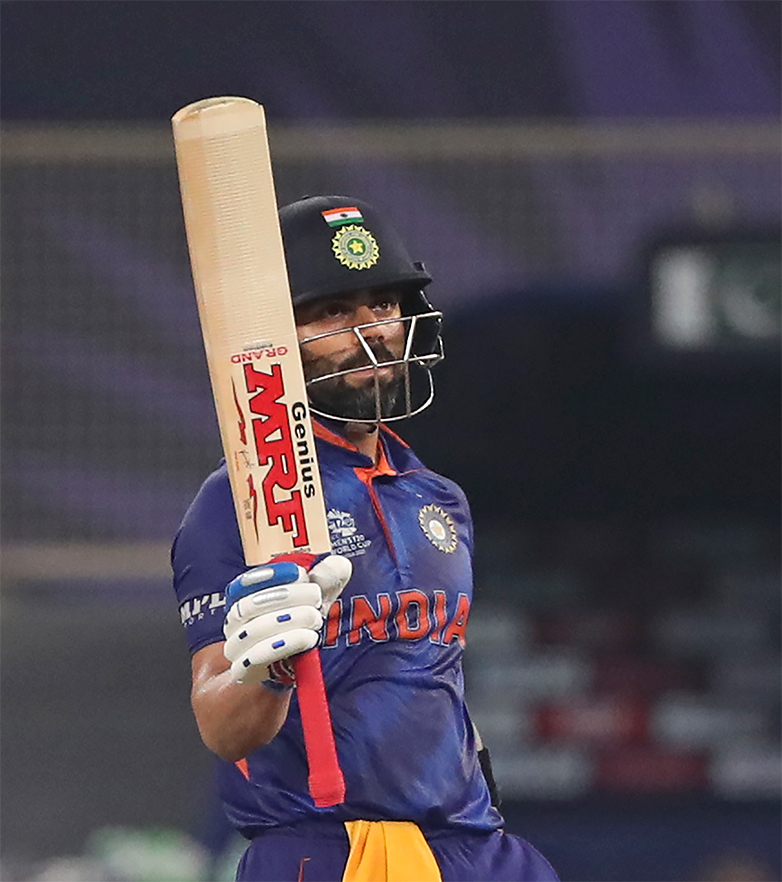
Indian cricket captain Virat Kohli celebrates after scoring half a century during the Cricket Twenty20 World Cup match between India and Pakistan in Dubai, UAE, on October 24, 2021. (AP)
Earlier Afridi returned figures of 3-31 after a lethal first spell to hurt India who elected to field first in the Super 12s encounter watched by 20,000 in the stadium and a global TV audience of hundreds of millions of fans.
Kohli scored his 29th T20 fifty to help the team rebuild before being caught behind off Afridi as Pakistan dismissed the star batsman for the first time in a T20 World Cup game.
Afridi struck the first blow with an express delivery that swung in to trap Rohit Sharma lbw for a first ball duck.
Kohli walked in amid raucous applause from the Indian fans who were soon silenced by another ripper from Afridi in his second over.
The 1.98 meter bowler got KL Rahul with a delivery that came in sharply to take the batsman’s thigh pad and rattle the stumps.
Kohli and new batter, Suryakumar Yadav attempted to hit back with some positive shots as they smashed Afridi for a six each.
Wicketkeeper Mohammad Rizwan then pulled off a superb diving catch to cut short Yadav’s stay at the wicket with quick bowler Hasan Ali striking in his first over. Yadav made 11.
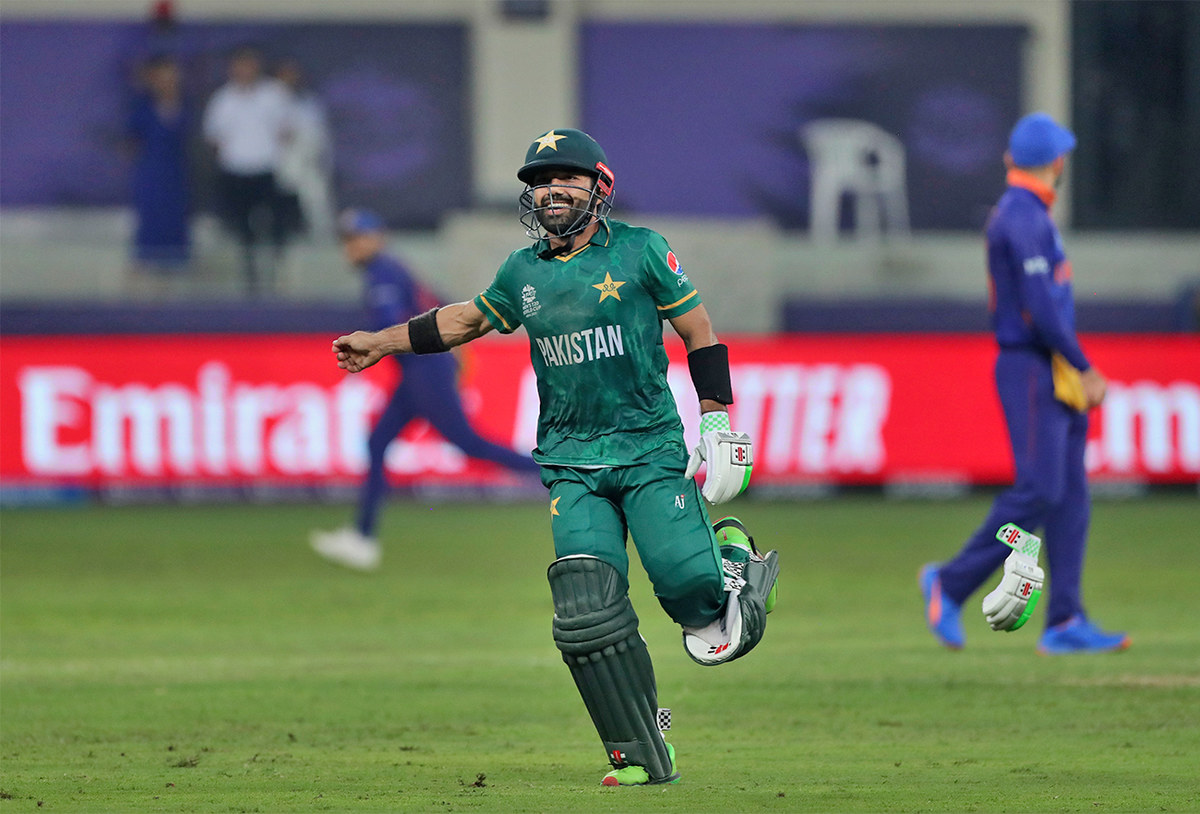
Pakistan's Mohammad Rizwan runs to celebrate their victory in the Cricket Twenty20 World Cup match between India and Pakistan in Dubai on October 24, 2021. (AP)
Rishabh Pant joined Kohli in the middle and the left-right batting pair rebuilt the innings and took India to 60-3 at the end of 10 overs.
Pant, a wicketkeeper-batsman who survived a close caught behind call off one of his attempted reverse sweeps, kept up the charge with adventurous strokeplay.
He hit Ali for two successive sixes but finally fell to Shadab Khan’s leg spin in the next over, top-edging a ball that went high and into the hands of the bowler.
Pant made 39 off 30 balls. Kohli stood firm to soak up the pressure to get to his 50 in 45 balls.
Babar won the toss and opted to chase. The decision paid off as Rizwan toyed with Indian bowlers as they struggled with the wet ball when dew settled in the second half of the game.
It was Pakistan’s first-ever victory by 10 wickets against any opposition in a T20 while India also faced the ignominy of losing by such a margin for the first time.
India had beaten Pakistan in all of their 12 matches at the T20 and 50-over World Cups.
Pakistan, however, went into the contest with 10 wins in a row in the United Arab Emirates, their home away from home for most of the last decade.
It was the first time the two nations had clashed since the 50-over World Cup in 2019.
Of the 12 World Cup losses for Pakistan, five have been at the T20 tournament.
Two were at the inaugural event in 2007 — a tied group game decided by a ‘bowl-out’ and a five-run loss in the final.
“To be honest, what has passed is beyond us,” said Pakistan captain Babar Azam on Saturday. “Records are meant to be broken.”
His team got the dream start with Shaheen Shah Afridi dismissing Rohit Sharma first ball.
Tickets for Sunday’s contest — where the stadium crowd numbered around 20,000 — were sold out just hours after they went online and many private online channels were offering resale of the entry passes at inflated prices.
Some resale tickets were being advertised for $250 with $6,000 for corporate boxes.
The South Asian nuclear rivals have only played in multi-national events like World Cups and the Champions Trophy as strained relations have stalled bilateral cricket since 2007.
Pakistan did tour India in 2012 for five limited-over matches but ties were not fully resumed as the two nations continued to be at loggerheads over multiple issues, with the disputed region of Kashmir and terrorism heading the list.



